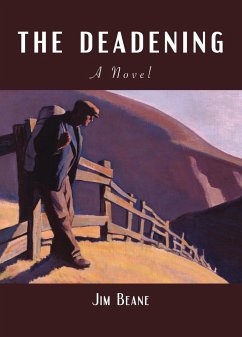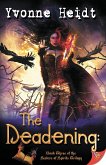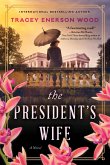The shelling stopped on Nov. 11, 1918, sending millions of American soldiers back to the United States to pick up where they had left off before joining or being drafted into the war effort. Doughboys were sent off to fight and many returned as men, irreparably damaged physically and mentally. The years following WWI were defined, in part in the United States, by the Spanish flu, Prohibition, bootleg whiskey, drug usage, and new drug laws. Amid these changes, traumatized young men returned from the so-called Great War and tried to fit back into their old lives. Many did and many did not — This novel, The Deadening, deals with two who did not. Set in the early 1920s, The Deadening is the story of two American doughboys, both casualties, back from the WWI and the paths they travel — literal and existential. In 1921, the shadow of WWI hangs over two American veterans’ home from the war. Drafted doughboys, Harrell Hickman and Willem Redd, find themselves in the northwestern territory of Nebraska on opposite sides of the law. Sheriff Redd suffers from physical wounds, while Hickman lives with a little understood condition, then labelled as shell shock. They return home in a time of societal upheaval and their paths intersect in the town of Wisdom, where the bond of combat veterans is not enough to save them from tragedy. Harrell Hickman walks away from an overcrowded veteran’s hospital on the east coast where he has been hospitalized for “shell shock”: he has no visible scars. Harrell has no family to return to, no ties to any community. His ability to cope largely depends on alcohol and laudanum. Hopping freights west, he ends up in Wisdom, a small Nebraskan town where he encounters Willem Redd, also a veteran. Redd grew up in Wisdom, is married with children, owns a mercantile, and serves as sheriff for the territory, despite his physical wounds: he lost an arm and an eye in the trenches. Unlike Hickman, he has the love of a wife and support from the community, which has helped him cope, though he too has been irrevocably damaged. Hickman goes to work for John Conover, a rancher, some distance from Wisdom. But Hickman’s negligence and drug use results in two unexpected murders—the killing of Conover and the death of Conover’s son. Sheriff Redd sets out for the ranch with his deputy Tim Smallwood to investigate and a fatal clash between the two ex-soldiers ensues. This narrative tale will be complemented by uncaptioned photographs that evoke Hickman and Will Redd’s lives during trench warfare in Europe and after returning to the U.S. The Deadening is relevant to modern readers as American veterans continue to face the overwhelming psychological challenges that battle thrust them into.








